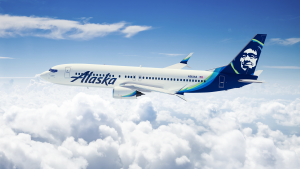
Major US Internet Service Providers
With the vast amount of capital and lobbying power that major American internet service providers (ISPs) have, their large influence is not surprising. As discussed in the BTM lecture, there is growing concern among consumers about a lack of online privacy due to the reversal of regulations that allow US ISPs to collect consumer data without consent. One problem is that the FCC is headed up by partisan officials appointed by the current administration. Given that many of the appointees previously worked for internet service providers or have financial incentives and pressure, the policies that are created generally serve businesses rather than consumers.
A larger concern, as noted in an American Civil Liberties Union (ACLU) blog, is that companies can use data in order to build discriminatory profiles of consumers. Retailers have used locations to offer customers in high-wealth areas discounts while raising prices for those in low-income areas with few retail options. I found the ACLU blog to be useful because it presented arguments that had strong and tangible impact on some of the most vulnerable citizens in society. It also highlighted the power that ISPs have by showing how politicians, who are considered to be “privacy champions,” are giving in to pressure from ISPs.
 I believe that the government, especially in the United States, needs to play a larger role in protecting consumers. By allowing ISPs to collect information without the consent of individuals, it disproportionately impacts consumers who are less educated, less aware, and of a lower socio-economic class. This is ignoring the mandate of the government to look out for the best interest of its citizens (who are mostly consumers) by allowing them to be exploited by corporations when previous laws existed that provided substantial protection. It also works counter-intuitive to other government programs, such as welfare, that look to aid the most vulnerable in society. With the reliance on the internet to find jobs and shop, it further perpetuates inequalities when the government is unwilling to step in for the consumer.
I believe that the government, especially in the United States, needs to play a larger role in protecting consumers. By allowing ISPs to collect information without the consent of individuals, it disproportionately impacts consumers who are less educated, less aware, and of a lower socio-economic class. This is ignoring the mandate of the government to look out for the best interest of its citizens (who are mostly consumers) by allowing them to be exploited by corporations when previous laws existed that provided substantial protection. It also works counter-intuitive to other government programs, such as welfare, that look to aid the most vulnerable in society. With the reliance on the internet to find jobs and shop, it further perpetuates inequalities when the government is unwilling to step in for the consumer.
This argument could be countered with the idea that ISPs generating larger revenues gives back to the populous via tax revenue. The problem with this is that executives of various ISPs have admitted that reducing the rules on collecting data will not yield a substantial increase in revenue. This means that consumers privacy is being violated in return for very little benefit.
In a world where the digital sphere is essential to life, the prospect that ISPs could know more about us than we do is a scary proposition. Unfortunately, the lack of regulation by governments is leaving those who are already vulnerable in society more exposed than ever.
[Word count: 450]
Works Cited:
Snider, M. (2017, April 04). ISPs can now collect and sell your data: What to know about Internet privacy rules. Retrieved October 28, 2017, from https://www.usatoday.com/story/tech/news/2017/04/04/isps-can-now-collect-and-sell-your-data-what-know-internet-privacy/100015356/
Turner, N. (2017, March 10). Congress: Don’t Let Internet Providers Sell Our Data to the Highest Bidder. Retrieved October 28, 2017, from https://www.aclu.org/blog/privacy-technology/internet-privacy/congress-dont-let-internet-providers-sell-our-data-highest
Images (in order of appearance):
[Internet Service Provider Logos]. (n.d.). Retrieved October 28, 2017, from https://championelite.files.wordpress.com/2010/11/internet-providers2.jpg
Prell, J. (2011). [Man surfing the internet]. Retrieved October 28, 2017, from http://wkdq.com/files/2011/10/Web-surfing.jpg

